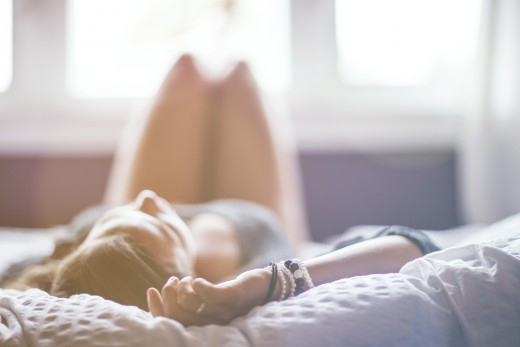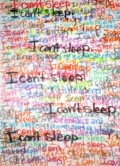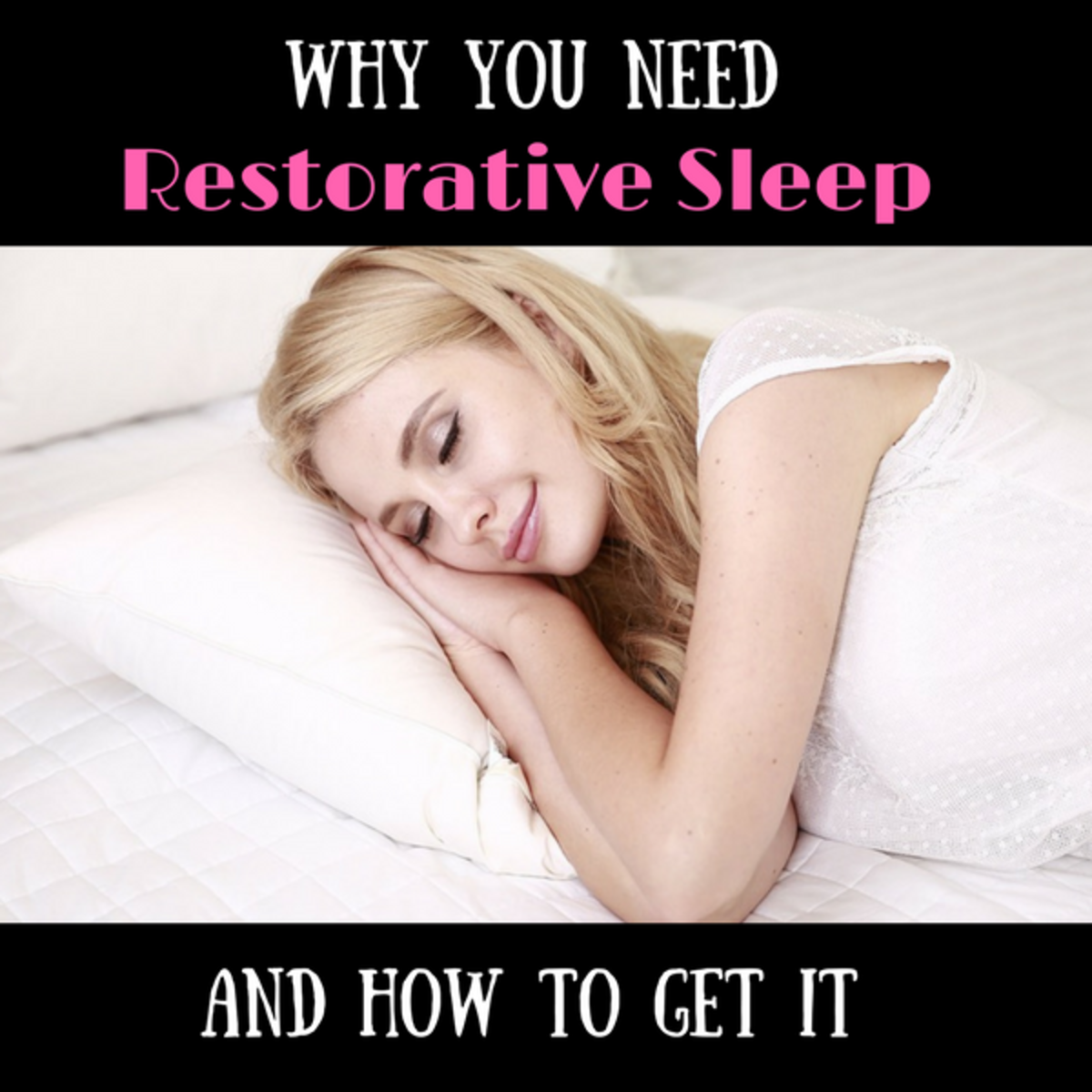Sleep On Your Way To Success
"Sleep is the best meditation."
— Dalai LamaEverybody needs sleep
Sleep is that quiet moment our body needs to recover and recharge in order to get ready for a new day full of energy consuming and catabolic activities that we usually have to do so we can reach the goals we set.
Having said that, it is clear that to do those activities, we want our body to work at its best everyday so we can be as efficient as we can. This is the part where sleep plays a big role so it is a good idea to optimize our sleep and sleeping habits accordingly to the degree of the energy we ask our bodies to hand out.
Unfortunately, in today's fast-paced society, sleep gets a secondary importance to other things like work, fun or activities that bring joy to us.
The thing is, the human body developed its natural circadian rhythms well before the finding of fire or tools, and as Paul Chek says in his book The Last 4 Doctor You'll Ever Need, in modern society people get ninety minutes less sleep every night than people living a hundred years ago.
Research studies suggest that the sleep between 10 P.M. and 2 A.M. is the most refreshing cycle and the most efficient for physical recovery (muscles, joints, bones and organs) and after that begins the cycle involving the nervous and hormonal system.
With those in mind, let's talk about the benefits of a good night's sleep and the side effects of poor sleep.

Sleep and success
First off, let's see how optimizing sleep can get us on top of our game and help us reach the success we're striving for.
- Sleep is crucial for learning and memory
- Aids in perfecting motor skills
- Keeps a strong immune system
- Facilitates weight loss
- Improves concetration and productivity
- Promotes emotional stability
- Maximizes athletic performance
- Spurs creativity
- Sharpens attention
- Lowers stress
As you can see there are quite a few sleep benefits and all of them are on our side when it comes to becoming the strongest version of ourselves and reaching success.
Poor sleep and success?
We've already established that a good sleep has the potential to skyrocket our achievements but now we should ask ourselves the following question:
Can a poor sleep have the same "benefits" as a good sleep?
To find that out let's look for some side effects of sleep restriction:
- Increased hunger and appetite
- Contributes to weight gain and obesity
- Increased Inflammation
- Promotes disease
- Greater risk of heart disease and stroke
- Associated with depression
- Poor athletic performance
- Kills sex drive
- Low energy
- Mood changes
Is this looking like a good strategy for living and enjoying the life you want, achieving goals and reaching the ultimate success?
In my opinion it isn't even close to what I'm striving for.

Now that we know sleep is very important for our overall health and has effects on every domain of our life, the questions are....
Do we prioritize sleep as we should?
Are our sleeping habits helping us to take on daily activities with our body at full capacity?
The answer is different for each of us. Some treat sleep as a religion and others as a hobby. It is well known that most young people feel like they have all the energy in the world. It's like energy flows through their veins. This is the time when the desire is to discover and experience as many things as they can so sleep is something done just for recharging batteries, just like phones, the difference being in the fact that the human body has other needs like nutrition, hydration, movement etc.
Going further you may ask yourself how many hours of sleep does one need?
The general recommendation is 7-8 hours/night but in reality it depends. Since every one of us is unique, the hours of sleep that will give us the best results depend on many variables like:
- sex
- age
- lifestyle
- daily activities
- exercise intensity
- athlete/ non-athlete
My invitation to you is to experiment and see which one works best for you. Some people can cope extremely well with 6 hours of sleep a night while others need 9 hours to feel refreshed.
To form a general image, I will leave below a chart with the hours of sleep recommended for every age by the National Sleep Foundation.
Period of life
| Hours of sleep recommended
|
|---|---|
Newborns (0-3 months)
| 14-17
|
Infants (4-11 months)
| 12-15
|
Toddlers (1-2 years)
| 11-14
|
Preschoolers (3-5 years)
| 10-13
|
School age children (6-13 years)
| 9-11
|
Teenagers (14-17 years)
| 8-10
|
Younger adults (18-25 years)
| 7-9
|
Adults (26-64 years)
| 7-9
|
Older adults (65+ years)
| 7-8
|
How many hours a night do you sleep?
Sleep Improvement Tips
Now that we've learned how important sleep really is, the benefits of sleep that can help reach your full potential, the downsides of poor sleep and how many hours of sleep do we need for maximal improvement, all that remains is to look for ways to optimize our sleep.
Without further ado let's see what methods can help you make sleep a priority and get the most refreshing and rejuvenating sleep that you can get.
1. Have a regular bed time
By doing so your circadian rhythm gets used to this routine and it knows that you better be sleepy when the time to get in bed comes.
2. Wake up when the sun rises or around 6 P.M.
3. Reduce exposure to artificial light and electromagnetic radiation
You can do this by unplugging any electrical device like radios and alarm clock before bed. Also stop using your computer and phone 1-2 hours before bed or at least if you use them try some blue light filtering programs.
4. Practice mindfulness and meditation
This way you relax you body and increase melatonin levels, the hormone responsible for sleep.
5. Exercise
Physical activity is known to promote better sleep by decreasing your cortisol levels, the stress hormone. Be careful though to not overdo it.
6. Keep a dark and cold room
It is essential to have a comfortable environment when sleeping so pull the curtains on your windows since any amount of light can disrupt your sleep. People also sleep better when the temperature of the room is between 60-65°F (15-18°C).
7. Avoid naps during the day
There are people like me who have a really difficult time falling asleep at night if they've already taken a nap during the day.
8. Shower or bathe before bed
It gives you that clear and fresh relaxing state.
9. Listen to relaxing music
10. Do some journaling
Going to sleep with your mind full of thoughts that cultivate anxiety, stress and negative emotions isn't the most intelligent thing to do. Instead, take 15 minutes before bed to write the things that went well that day, things that you are grateful for and even plan the next day for a better management of your time.

Watch your mouth
From a nutrition standpoint, here are some proposals for a pre-bed eating routine:
1. Look for tryptophan
Tryptophan is an amino acid that helps the brain get into a relaxed state, which makes it easier for you to fall asleep. Some sources of this amino acid are meats like turkey, chicken, lamb, beef (look for the best quality when buying those), nuts, fish, cheese, 100% sprouted grains.
2. Relax with CALCIUM
Calcium helps the cells in the brain to make melatonin. If you tolerate milk, a glass of cow milk with a pinch on turmeric and cinnamon can do wonders, or a warm glass of goat's milk kefir.
3. Magnesium
High levels of magnesium are known to induce a deeper sleep. Foods known for their magnesium content are dark leafy greens, pumpkin seeds, dark chocolate and sprouted grains.
4. Valerian Root
This is another plant that has the potential of inducing sleep, by increasing the amount of gamma aminobutryic acid (GABA).
5. Tea
Last but not least, caffeine-free tea has been shown to increase glycine levels, thus relaxing nerves and muscles. Some options could be chamomille, peppermint or passionfruit.
References
- 20 Simple Ways to Fall Asleep as Fast as Possible
Being unable to sleep is incredibly frustrating, plus it can make you feel miserable the next day. Here are 20 simple tips to fall asleep as fast as possible. - How Much Sleep Do We Really Need? | National Sleep Foundation
Sleep is a vital indicator of overall health and well-being. We spend up to one-third of our lives asleep, and the overall state of our "sleep health" remains an essential question throughout our lifespan. Most of us know that getting a good night’s - 4 Reasons Why You Should Get 8+ Hours of Sleep Per Night – Sleep For Success
- 10 Reasons Why Good Sleep Is Important
Getting quality sleep is one of the best things you can do for your health. Here are 10 evidence-based reasons why good sleep is important. - 7 Foods For a Better Night’s Sleep
One of the simplest ways to be healthier, both physically and mentally, is to get enough sleep. Our busy lives and demanding obligations can make that difficult, if not downright impossible. And with anxiety on the rise, falling asleep, and staying a - 7 Natural Sleep Aids that Work to Improve Sleep & Health - Dr. Axe
Getting enough sleep is one of the most important things you can do for your health. Here are seven natural sleep aids that can keep you fresh and healthy.
This content is accurate and true to the best of the author’s knowledge and does not substitute for diagnosis, prognosis, treatment, prescription, and/or dietary advice from a licensed health professional. Drugs, supplements, and natural remedies may have dangerous side effects. If pregnant or nursing, consult with a qualified provider on an individual basis. Seek immediate help if you are experiencing a medical emergency.
© 2019 Hacicu Bogdan








